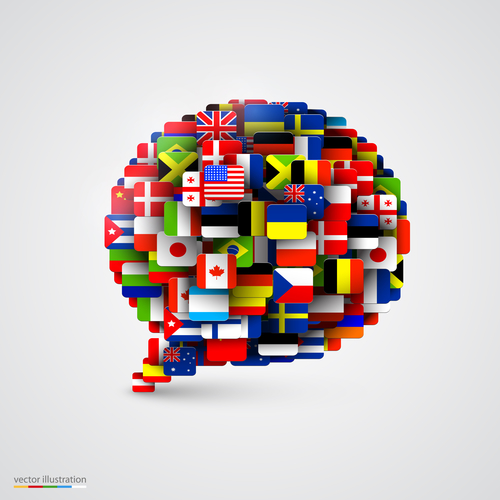4 ways to get the best professional translation

How to choose the best translation service for your content?
The world of professional translations has changed a lot in the last few years. The traditional figure of the Freelance translator or of an Agency that groups them, increasingly tends to be overtaken by those who can leverage the "crowd". There are 3 main types of translation services to contact:
- Traditional Translations with individual translators
- Automatic Translations with Bots and Machines
- Machine Translations with Human Proofreading
- Translations by in Crowd translators as practiced by Contentmarketingsuite
It is not always easy to choose which of these translation services suits your needs best. Often it may depend on the type of content, but sometimes it is urgency that drives many companies choice.
Traditional Translation Service
The choice of relying on a traditional translation service is a valid choice if there are only a few texts to translate and are not need too urgently needed.
Small and medium-sized companies or professionals are the classic target, even if this approach still hides typical pitfalls. In the case of a Freelance translator and above all in a language context where you are unfamiliar with the topic to be checked, this becomes relevant.
How can you be sure that the translated text is correct?
Text verification is essential because it prevents publishing texts that can undermine the credibility of your work or service on your site or e-commerce site. A combined "Traditional method" and "Translation agency" could be the right solution. Surely an agency, acting as an intermediary, could guarantee even greater control over the quality of work performed. Proofreading a translator's activities has a cost. Cost that will have to be recharged by the agency onto the final Customer. The classic agency, to be a "controller" of the translator's work, will have to use internal proofreaders. It goes without saying that on the one hand this cost will impact on almost half the cost of the translation. At the same time, in relation to an agency's number of proofreaders, during peak periods or on projects that include many texts, they will have to provide very long deadlines to process the projects commissioned.
Automatic Translation Service
For each step in the evolution of written texts or spoken language�s recognition "artificial intelligence" seems to bring us into a world without communication problems with people from other countries. The progress of machine Translation systems is truly relevant. If you have to translate a number of not too complex technical texts possibly starting from English, Machine Translations could be a good solution. Try inserting an English text into Google Translate to see how some words or idioms can be rather importantly altered. And we are referring to the company that has done the most in the world in understanding the meaning of texts. So if you need speed and sizeable amounts of translated content "Machines" can definitely help, but their accuracy needs to be checked carefully.
Machine Translations with Human Proofreading
Precisely for the purpose of guaranteeing human verification the work done by machine translation systems has given rise to services that combine man and machine. A translator or editor who handles machine translations will need to be a proofreader/expert Proofreader, with copywriting and writing skills in the final text's target language. This process' cost is in almost all cases somewhere between traditional human and machine translations. The important thing to ask is:
will the proofreader be able to make sense of the work done by machine?
In reality, proofreaders often perform a reading activity, identifying any errors or typos and sending back the text to the translator. In this case, they also need to rewrite some sections of the text to make it comprehensible to the final reader. The required skills are different from those of a classical operator, and this will always have to be verified.
Translation by in Crowd translators
The Internet has changed many sectors, "disrupting" the way we carry out work and tasks. The field of writing texts or making translations was no exception. Thanks to the potential of crowd sourcing Contentmarketingsuite.com translation services allow you to combine the advantages of the traditional method with the speed of machine translations. The benefits of Crowd Translations solutions apparently tackle the classic problems of translation services that we are used to:
- File transfer
Sending files to the translator, verifying the versions sent back to us and the relative edited files is probably the most time-consuming phase of translation work. Taking for example the translation of an E-commerce product sheet the problem becomes really complex, both for the number of products and the target languages for the translation. Counting on a single platform where you can upload the files to be translated, select the target languages and receive the translated contents simplifies the work and reduces time and possibility of error.
- Fast delivery and quality
The possibility of offering translation work to freelance professionals located anywhere in the world but identified and always connected at Contentmarketingsuite.com guarantees quality and speed of execution. The strength of Machine Translation, its speed, is in practice challenged by the number of translators available. Likewise, proofreaders are also in crowd, allowing verification with equal speed.
- Translation costs
Management of freelancers distributed as above guarantees a lean cost-effective and adaptable structure to the needs of the end customer.


.jpeg)


